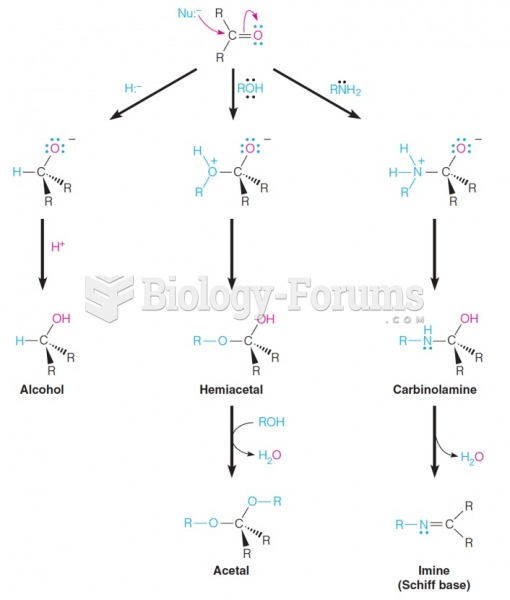|
|
|
Chronic necrotizing aspergillosis has a slowly progressive process that, unlike invasive aspergillosis, does not spread to other organ systems or the blood vessels. It most often affects middle-aged and elderly individuals, spreading to surrounding tissue in the lungs. The disease often does not respond to conventionally successful treatments, and requires individualized therapies in order to keep it from becoming life-threatening.
The eye muscles are the most active muscles in the whole body. The external muscles that move the eyes are the strongest muscles in the human body for the job they have to do. They are 100 times more powerful than they need to be.
Between 1999 and 2012, American adults with high total cholesterol decreased from 18.3% to 12.9%
The average adult has about 21 square feet of skin.
Autoimmune diseases occur when the immune system destroys its own healthy tissues. When this occurs, white blood cells cannot distinguish between pathogens and normal cells.
 Addition of mineral nutrients to the boreal forest can have different effects on different plant spe
Addition of mineral nutrients to the boreal forest can have different effects on different plant spe
 The ovaries. In addition to producing ova, the ovaries secrete the female sex hormones, estrogen and
The ovaries. In addition to producing ova, the ovaries secrete the female sex hormones, estrogen and





